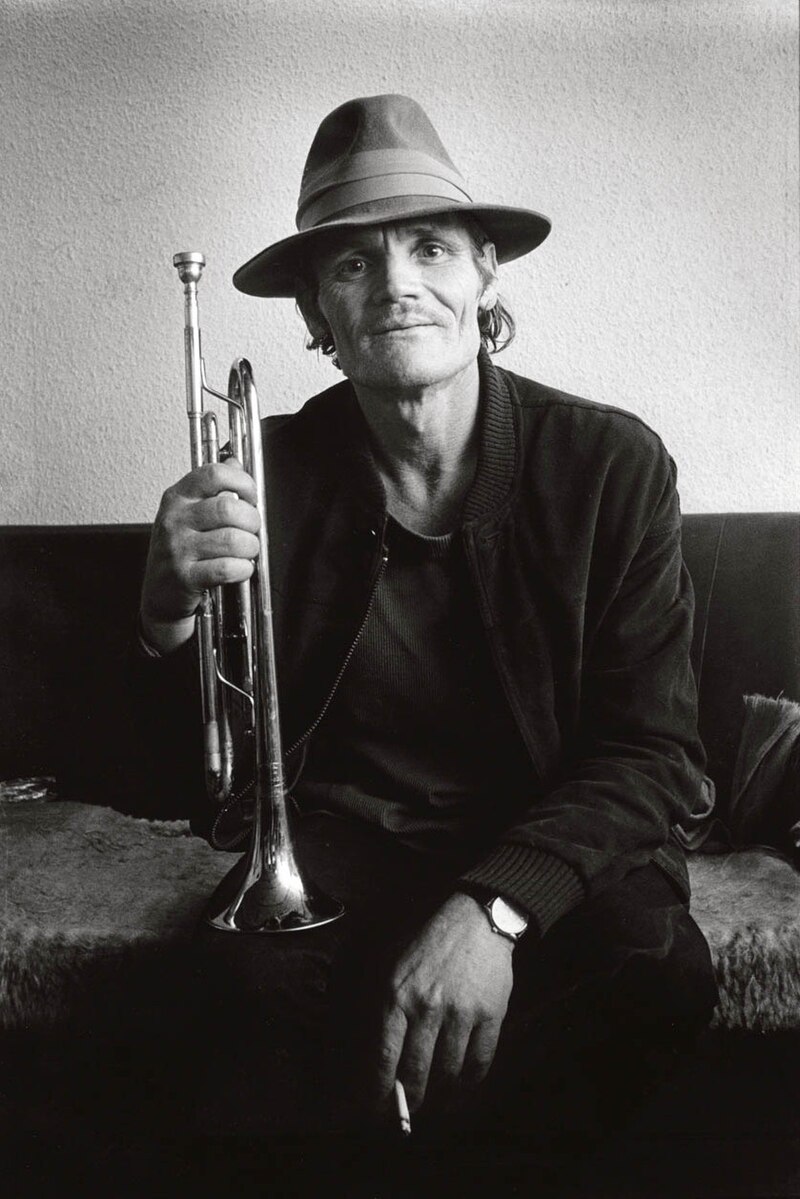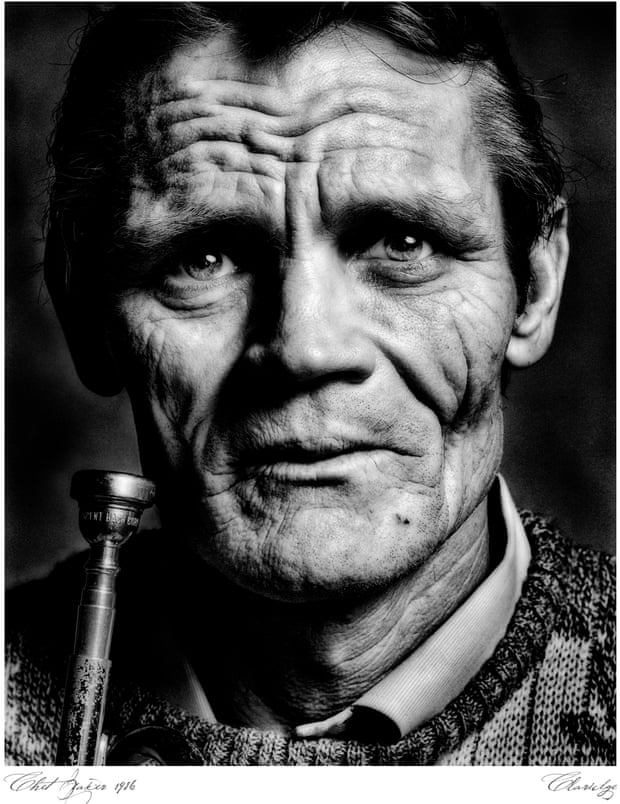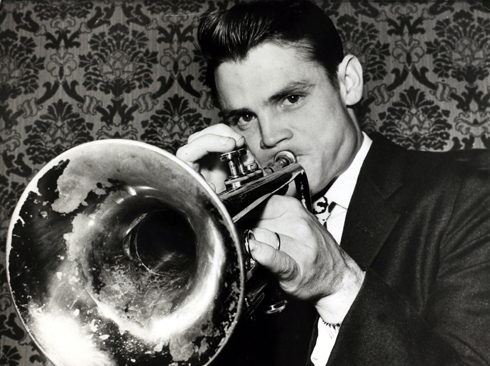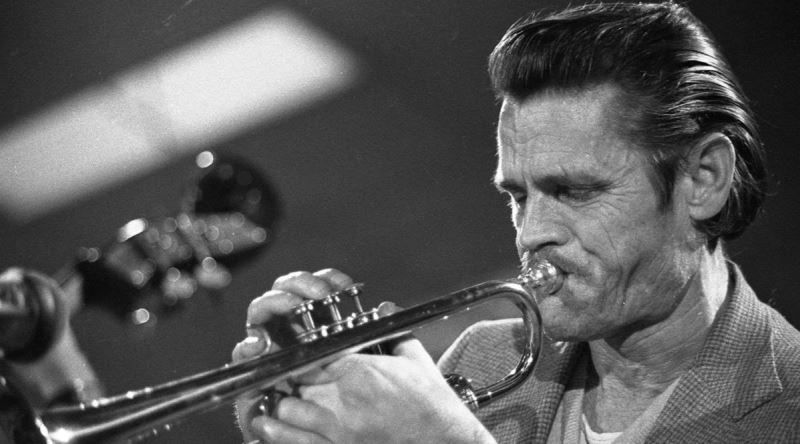Chet Baker
Chet Baker

Chesney Henry "Chet" Baker Jr. was an influential figure in American jazz, renowned for his prowess as both a trumpeter and vocalist. His contributions to cool jazz earned him the affectionate moniker "Prince of Cool."
Throughout the 1950s, Baker garnered widespread acclaim, particularly for his vocal performances on albums like Chet Baker Sings (1954) and It Could Happen to You (1958). Jazz historian Dave Gelly encapsulated the allure of Baker's early career, likening him to a fusion of James Dean, Sinatra, and Bix Beiderbecke.
However, Baker's life was also marked by a well-documented struggle with drug addiction, which frequently landed him in legal trouble. Despite this, his talent continued to captivate audiences, leading to a career resurgence in the late 1970s and 1980s. Baker's journey embodies both the highs of musical innovation and the lows of personal turmoil, leaving an indelible mark on the annals of jazz history.
Chesney Henry "Chet" Baker Jr. entered the world on December 23, 1929, in Yale, Oklahoma, where he was enveloped in a household steeped in music. His father, Chesney Baker Sr., was a skilled Western swing guitarist, while his mother, Vera Moser, showcased her musical talents as a pianist employed in a perfume factory. Hailing from Norwegian descent, his maternal grandmother added another layer of musical heritage to Baker's upbringing.
The Great Depression forced the family to relocate to Glendale, California, in 1940, when Baker was merely 10 years old. It was here that Baker's musical journey truly began, initially singing in the church choir. Inspired by his father's admiration for Jack Teagarden, Baker first experimented with the trombone before transitioning to the trumpet at the age of 13 due to its more suitable size. Even before receiving an instrument, Baker displayed an innate ability to memorize tunes heard on the radio.
His passion for the trumpet flourished rapidly, earning him the reputation among peers as a natural musician. Baker's formal musical education commenced at Glendale High School, though he departed at 16 in 1946 to enlist in the United States Army. Stationed in Berlin, Germany, with the 298th Army Band, Baker's exposure to modern jazz burgeoned through the sounds of Dizzy Gillespie and Stan Kenton on V-Discs.
Post-Army life found Baker delving deeper into his musical aspirations. He briefly pursued music theory and harmony at El Camino College in Los Angeles before re-enlisting in the Army. Serving with the Sixth Army Band at the Presidio in San Francisco, Baker's immersion in the city's vibrant jazz scene, frequented by clubs like Bop City and the Black Hawk, further fueled his passion for music. Discharged from the Army in 1951, Baker embarked on his journey to pursue a career in music with newfound determination.
Chet Baker's ascent in the jazz world was punctuated by notable collaborations and artistic milestones. After performing alongside Vido Musso and Stan Getz, Baker caught the attention of Charlie Parker, who handpicked him for a series of engagements on the West Coast.
In 1952, Baker's career trajectory shifted significantly as he joined the Gerry Mulligan Quartet, a collaboration that garnered widespread acclaim. Unlike the traditional approach of playing identical melody lines, Baker and Mulligan's synergy was marked by intricate counterpoint, setting them apart. Their rendition of "My Funny Valentine," featuring Baker's haunting trumpet solo, became an instant hit and a defining piece throughout his career. Together, they graced the stages of renowned Los Angeles jazz clubs like The Haig and the Tiffany Club.
Following Mulligan's incarceration on drug charges in 1953, Baker embarked on his own musical endeavors, forming quartets with esteemed musicians such as Russ Freeman, Bob Whitlock, and Shelly Manne. Their collective efforts yielded a string of popular albums between 1953 and 1956, propelling Baker to the forefront of jazz consciousness. Notably, he triumphed in readers' polls at Metronome and DownBeat magazines, surpassing luminaries like Miles Davis and Clifford Brown.
Baker's magnetic persona, coupled with his matinee-idol looks, positioned him as a symbol of California cool. Hollywood recognized his star potential, leading to his acting debut in the film "Hell's Horizon" in 1955. However, Baker's heart remained devoted to music, prompting him to decline lucrative studio contracts in favor of the nomadic life of a traveling musician.
Venturing to Europe in September 1955, Baker embarked on an extensive tour, showcasing his talents and recording for the Barclay label. Despite the untimely death of pianist Dick Twardzik from a heroin overdose, Baker persevered, enlisting local pianists to continue the tour.
Upon returning to Los Angeles, Baker resumed recording for Pacific Jazz, collaborating with luminaries like Art Pepper and contributing to the soundtrack of "The James Dean Story." His move to New York City facilitated fruitful collaborations with Gerry Mulligan and Stan Getz, resulting in seminal releases like "Reunion with Chet Baker" and "Stan Meets Chet."
In 1958, Baker's album "It Could Happen to You" showcased his scat singing prowess, marking a departure from his trumpet-centric works. His final significant release before returning to Europe, "Chet," boasted an all-star lineup and underscored Baker's enduring influence in the jazz pantheon.
References
- "Chet Baker". Jazz Discography Project. Archived from the original on May 14, 2017. Retrieved December 18, 2013.
- a b c d e f Ruhlmann, William. "Chet Baker". AllMusic. Retrieved November 13, 2015.
- ^ Carr, Roy (December 2, 2004). "A century of jazz". London : Hamlyn – via Internet Archive.
- ^ Gelly, Dave (2000). Icons of Jazz: A History in Photographs, 1900–2000 (North American ed.). San Diego, California: Thunder Bay Press. ISBN 1-57145-268-0.
- ^ Leland, John (October 5, 2004), Hip: The History, HarperCollins, pp. 265–, ISBN 978-0-06-052817-1, retrieved November 13, 2015
- a b c d Gioia, Ted (1998). West Coast Jazz: Modern Jazz in California, 1945-1960. University of California Press. ISBN 9780520217294.
- a b c d e f g h Gavin, James (2011). Deep in a Dream: The Long Night of Chet Baker. Chicago Review Press. ISBN 9781569767573.
- ^ "Chet Baker | Biography & History". AllMusic. Retrieved March 15, 2021.
- a b c d e f g h i j k l m n o p q r s Valk, Jeroen de (2000). Chet Baker: His Life and Music. Berkeley Hills Books. ISBN 9789463381987.







































